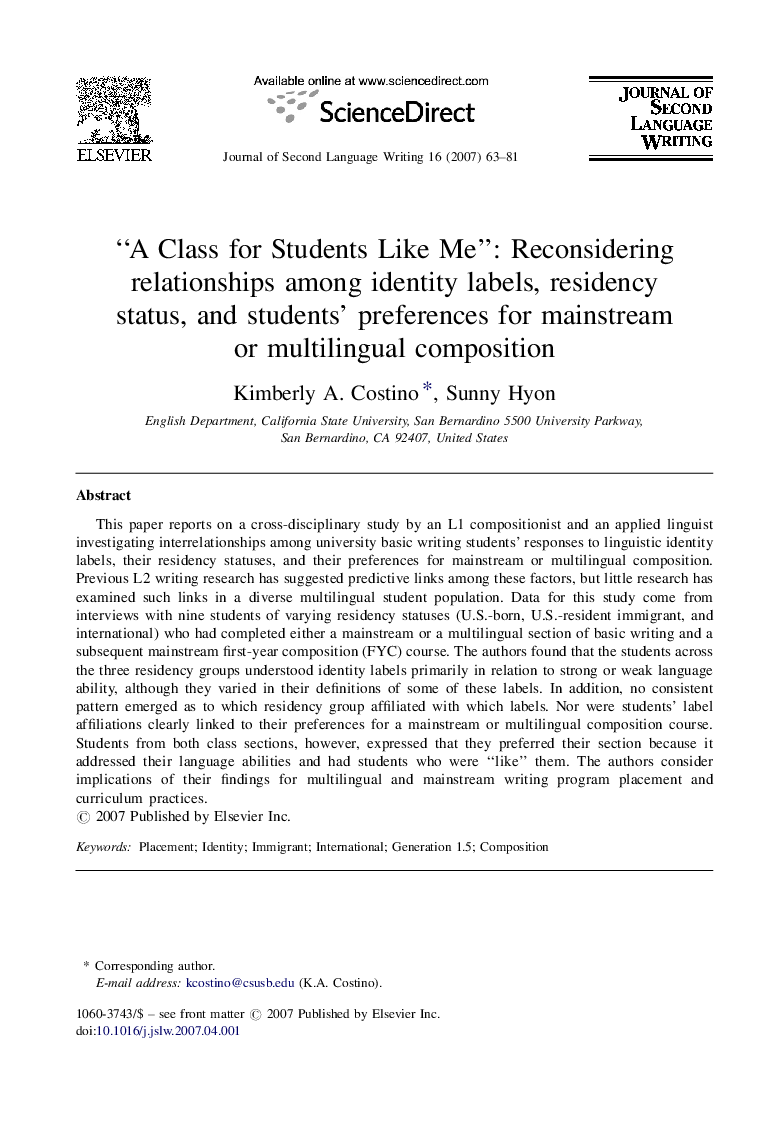| Article ID | Journal | Published Year | Pages | File Type |
|---|---|---|---|---|
| 364253 | Journal of Second Language Writing | 2007 | 19 Pages |
This paper reports on a cross-disciplinary study by an L1 compositionist and an applied linguist investigating interrelationships among university basic writing students’ responses to linguistic identity labels, their residency statuses, and their preferences for mainstream or multilingual composition. Previous L2 writing research has suggested predictive links among these factors, but little research has examined such links in a diverse multilingual student population. Data for this study come from interviews with nine students of varying residency statuses (U.S.-born, U.S.-resident immigrant, and international) who had completed either a mainstream or a multilingual section of basic writing and a subsequent mainstream first-year composition (FYC) course. The authors found that the students across the three residency groups understood identity labels primarily in relation to strong or weak language ability, although they varied in their definitions of some of these labels. In addition, no consistent pattern emerged as to which residency group affiliated with which labels. Nor were students’ label affiliations clearly linked to their preferences for a mainstream or multilingual composition course. Students from both class sections, however, expressed that they preferred their section because it addressed their language abilities and had students who were “like” them. The authors consider implications of their findings for multilingual and mainstream writing program placement and curriculum practices.
